第29章
If not, a thousand Mrs.Brents, Ten thousand Archys arm'd with spades, May dig in vain to Pluto's shades.
From thence a plenteous draught infuse, And boldly then invoke the muse (But first let Robert on his knees With caution drain it from the lees);The muse will at your call appear, With Stella's praise to crown the year.
STELLA'S BIRTHDAY, 1724.
As when a beauteous nymph decays, We say she's past her dancing days;So poets lose their feet by time, And can no longer dance in rhyme.
Your annual bard had rather chose To celebrate your birth in prose;Yet merry folks who want by chance A pair to make a country dance, Call the old housekeeper, and get her To fill a place, for want of better;While Sheridan is off the hooks, And friend Delany at his books, That Stella may avoid disgrace, Once more the Dean supplies their place.
Beauty and wit, too sad a truth, Have always been confined to youth;The god of wit, and beauty's queen, He twenty-one, and she fifteen;No poet ever sweetly sung.
Unless he were like Phoebus, young;
Nor ever nymph inspired to rhyme, Unless like Venus in her prime.
At fifty-six, if this be true, Am I a poet fit for you;Or at the age of forty-three, Are you a subject fit for me?
Adieu bright wit, and radiant eyes;
You must be grave, and I be wise.
Our fate in vain we would oppose, But I'll be still your friend in prose;Esteem and friendship to express, Will not require poetic dress;And if the muse deny her aid To have them sung, they may be said.
But, Stella say, what evil tongue Reports you are no longer young?
That Time sits with his scythe to mow Where erst sat Cupid with his bow;That half your locks are turned to grey;
I'll ne'er believe a word they say.
'Tis true, but let it not be known, My eyes are somewhat dimish grown;For nature, always in the right, To your decays adapts my sight, And wrinkles undistinguished pass, For I'm ashamed to use a glass;And till I see them with these eyes, Whoever says you have them, lies.
No length of time can make you quit Honour and virtue, sense and wit, Thus you may still be young to me, While I can better hear than see:
Oh, ne'er may fortune show her spite, To make me deaf, and mend my sight.
STELLA'S BIRTHDAY, MARCH 13, 1726.
THIS day, whate'er the Fates decree, Shall still be kept with joy by me;This day, then, let us not be told That you are sick, and I grown old, Nor think on our approaching ills, And talk of spectacles and pills;To-morrow will be time enough To hear such mortifying stuff.
Yet, since from reason may be brought A better and more pleasing thought, Which can, in spite of all decays, Support a few remaining days:
From not the gravest of divines Accept for once some serious lines.
Although we now can form no more Long schemes of life, as heretofore;Yet you, while time is running fast, Can look with joy on what is past.
Were future happiness and pain A mere contrivance of the brain, As Atheists argue, to entice, And fit their proselytes for vice (The only comfort they propose, To have companions in their woes).
Grant this the case, yet sure 'tis hard That virtue, styled its own reward, And by all sages understood To be the chief of human good, Should acting, die, or leave behind Some lasting pleasure in the mind.
Which by remembrance will assuage Grief, sickness, poverty, and age;And strongly shoot a radiant dart, To shine through life's declining part.
Say, Stella, feel you no content, Reflecting on a life well spent;Your skilful hand employed to save Despairing wretches from the grave;And then supporting with your store, Those whom you dragged from death before?
So Providence on mortals waits, Preserving what it first creates, You generous boldness to defend An innocent and absent friend;That courage which can make you just, To merit humbled in the dust;The detestation you express For vice in all its glittering dress:
That patience under to torturing pain, Where stubborn stoics would complain.
Must these like empty shadows pass, Or forms reflected from a glass?
Or mere chimaeras in the mind, That fly, and leave no marks behind?
Does not the body thrive and grow By food of twenty years ago?
And, had it not been still supplied, It must a thousand times have died.
Then, who with reason can maintain That no effects of food remain?
And, is not virtue in mankind The nutriment that feeds the mind?
Upheld by each good action past, And still continued by the last:
Then, who with reason can pretend That all effects of virtue end?
Believe me, Stella, when you show That true contempt for things below, Nor prize your life for other ends Than merely to oblige your friends, Your former actions claim their part, And join to fortify your heart.
For virtue in her daily race, Like Janus, bears a double face.
Look back with joy where she has gone, And therefore goes with courage on.
She at your sickly couch will wait, And guide you to a better state.
O then, whatever heav'n intends, Take pity on your pitying friends;Nor let your ills affect your mind, To fancy they can be unkind;Me, surely me, you ought to spare, Who gladly would your sufferings share;Or give my scrap of life to you, And think it far beneath your due;You to whose care so oft I owe That I'm alive to tell you so.